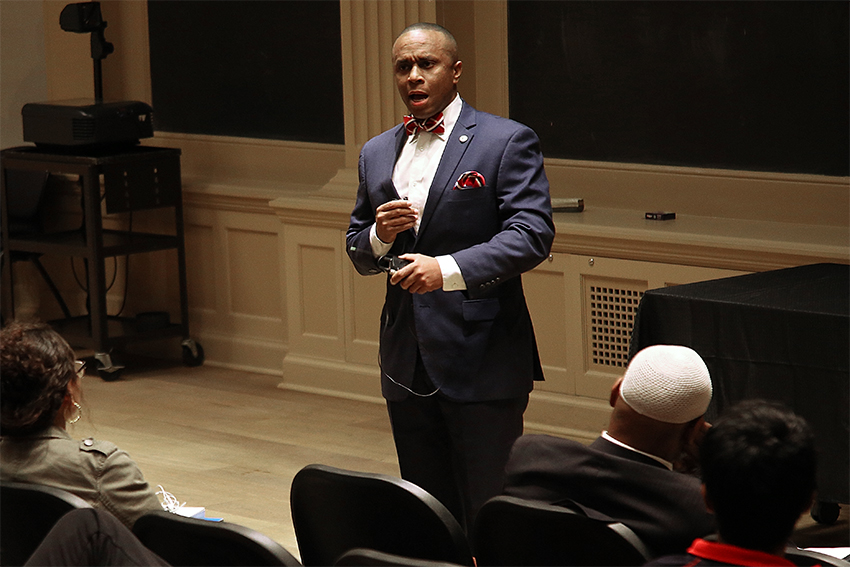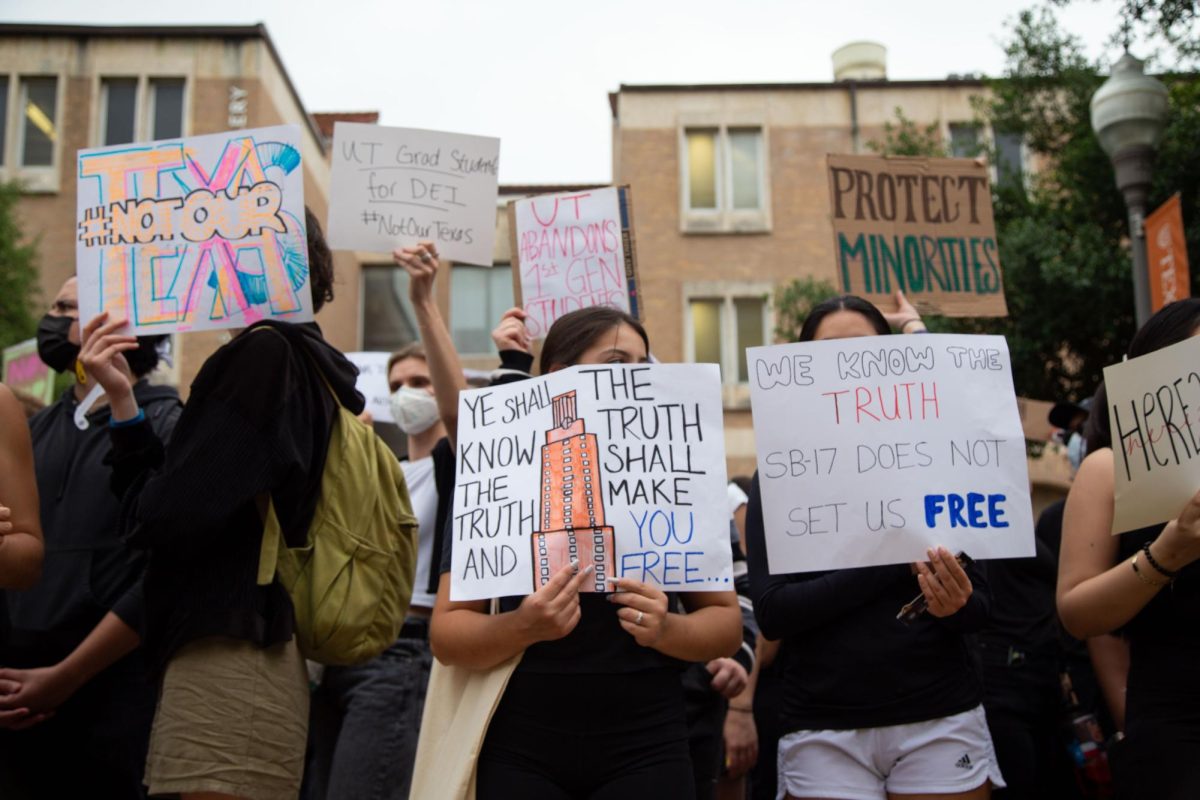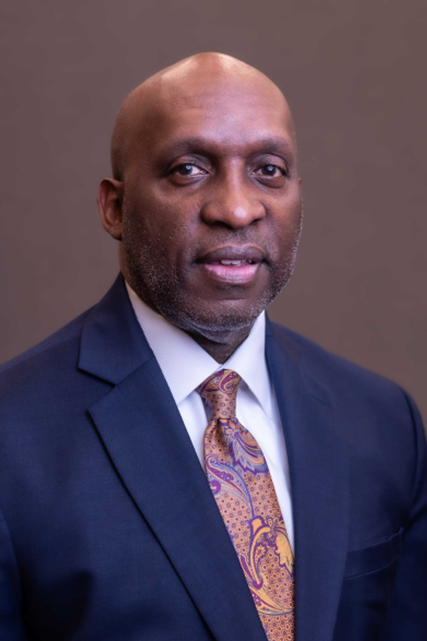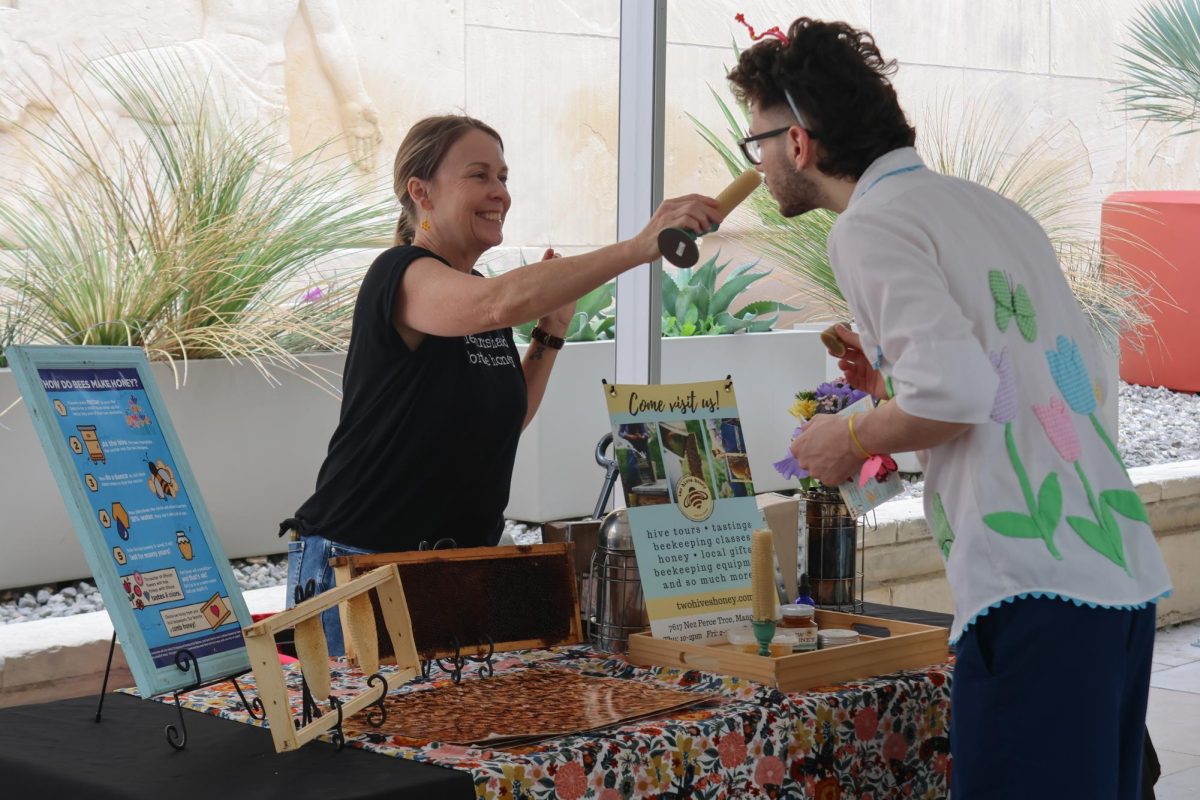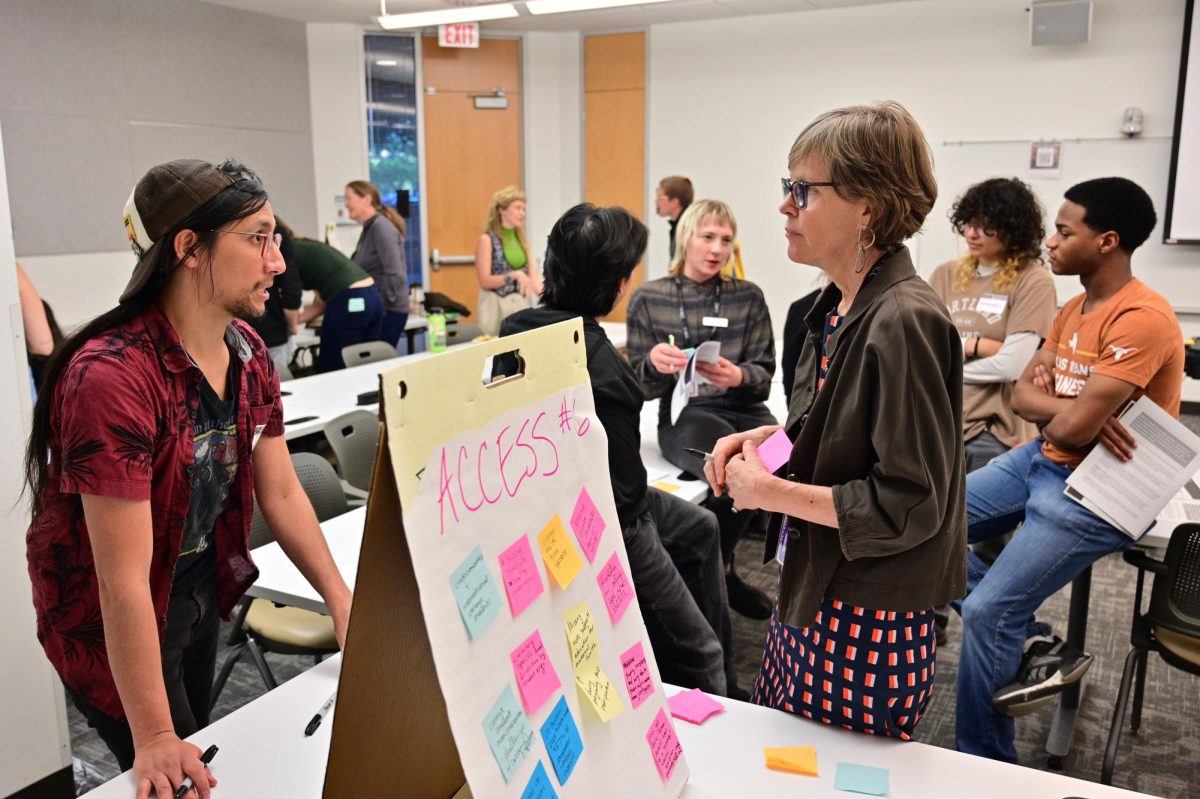To combat anti-Muslim rhetoric, students held a panel Thursday to discuss how perceptions of Islam in the U.S. have changed since the 9/11 terrorist attacks.
The Texas Ahmadiyya Muslim Students Organization brought four Muslim leaders from different sects of Islam to speak to students about their lives and answer questions about their religion.
“It’s just a way to get exposed to different types of Muslims and different people that are living in America,” said Mutahir Ahmad, neuroscience junior and president of AMSO. “It’s a way to show everyone that even a Muslim who has been raised very strictly in the religion can still be an American.”
Brother Robert Muhammad of The Nation of Islam Austin spoke about converting to Islam after crack cocaine tore apart his family in the early 1990s. Muhammad said Islam offered a new chance at life away from drug dealing, crime and his father, an alcoholic turned crack addict who left him when he was 16.
Muhammad said the U.S. created the need for measures such as “extreme vetting” and the travel ban through its own actions.
“You may not know it, but American foreign policy has made enemies all over the planet in the name of the American citizenship,” Muhammad said. “When that has happened, you’ve produced individuals that in their ignorance … begin to lash out at American citizens as a whole.”
Propaganda is the biggest source of misconception about Islam, according to Brother Mustafaa Carroll. Only 6 percent of terrorist plots in this country over the last 16 years were coordinated by Muslims, yet Muslims are still blamed as a major source of terrorism in the U.S., Carroll said.
Biochemistry sophomore Sophie Umar said the panel gave her hope for the future of Muslims in the U.S.
“I definitely do feel a lot more hopeful, especially with what they said about what we can do to move forward from here,” Umar said. “Things will change over time, so it definitely provides a lot of hope for things going on today.”
Carroll ended the panel by saying Muslim oppression and marginalization won’t last forever.
“If you’ve been around a while, you know this kind of stuff doesn’t last,” Carroll said. “The great thing about being a citizen in this country is we talk about our (issues) … so I think it’s going to pass (and) it’s going to get better.”



